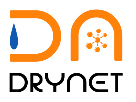Tardigrade research
In the EvoZool Lab, we study all aspects of tardigrade biology.
The Lab began to study tardigrades more than 40 years ago, in the 1970's, thanks to the research work of Prof. Roberto Bertolani in the taxonomy and reproductive biology of this group.
Today, researchs are performed on the adaptations of these animals to the extream environments.
We study the dormancy in tardigrades, such as cryptobiosis, focusing the researches in the physiology and molecural biology of the anhydrobiosis, and diapause, focusing in the little known encystment and resting eggs phenomena.
Another, main research fields regards the study of the phylogeny and taxonomy of tetrrestrial and freshwater tardigrades applying an integrative approach using molecular and morphological data.
Papers have been published also on the morpho-functional aspect of the tardigrades systems and apparatuses, such as the feeding and reproductive apparatuses, and the muscolature organization.
Actually we are involved in the following projects:
DRYNET
Marie Skłodowska Staff Exchange (RISE)
Call: H2020-MSCA-RISE-2015

GA No 734434 - DRYNET
Setting an interdisciplinary/sectorial/international research network to explore dry storage as an alternative strategy for cells/germoplasm biobanking
Recent progresses in regenerative medicine, drug testing, and disease modelling have resulted in massive increase in stored cell lines under liquid nitrogen (LN, -196°C). Moreover, the Convention on Biological Diversity calls all signatory nations to set up cells and gametes repositories from species in their respective territories as an instrument to counteract biodiversity decline worldwide. Although effective, cryostorage presents several problems, including high maintenance costs, need for specialised storage facilities and continuous LN supply, energy-dependency, safety concerns, and risk of pathogen transmission, and all serious issues in clinical practice. Besides these intrinsic problems, the industrial production of LN has a serious environmental impact, leaving a massive carbon footprint.
DRYNET project objective is to set an international and multidisciplinary network between European academic, small and medium-sized enterprises (SME), the European Union pan-Biobank, and international partners (Japan and Thailand), with the aim of sharing know-how and expertise to lay down the theoretical and early empirical basis for the dry storage of cells/ germplasm. DRYNET project relies on water subtraction to induce a reversible block of metabolism, a survival strategy available in nature (anhydrobiosis).
In the context of DRYNET, the screening for important xero-protectants will be performed in two of the best-characterized anhydrobiont animals in literature, such as midges and tardigrades. In particular, UNIMORE will perform screening studies for finding important essential xero-protectants in tardigrades by -omics approach (transcriptome and metabolome) and reverse genetics approach (gene knock-down and/or knock-out, such as RNAi and CRISPR/Cas system) on tardigrades.
For more information:
Official website: https://drynet.unite.it/
Facebook page: https://www.facebook.com/DryNetwork/
Twitter account: https://twitter.com/DryNet_project
Research Gate project: https://www.researchgate.net/project/DRYNET

